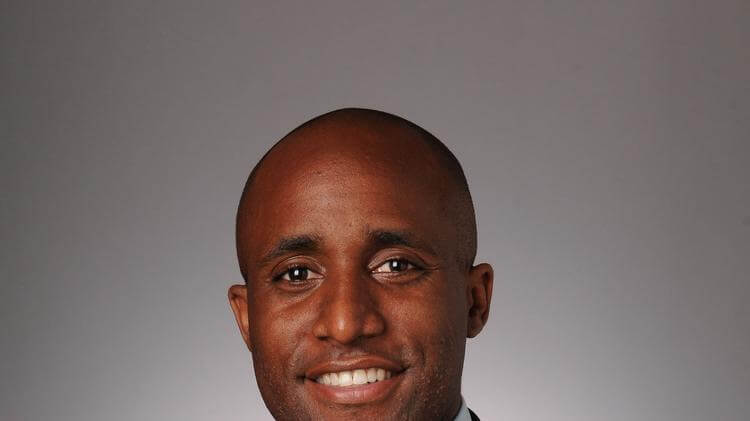Rob Roberts Reporter Kansas City Business Journal
Kansas City Council member Quinton Lucas, author of an incentive ordinance that would place 75 percent caps on property tax diversions and abatements for development projects, had the seven votes necessary to pass it Thursday — until one of his colleagues left City Hall..
Thus, Lucas eventually went along with Councilman Scott Wagner’s motion to put off the vote until Oct. 6.
Councilman Jermaine Reed, one of six co-sponsors of the ordinance, departed from the weekly City Council meeting about 30 minutes into an hour-and-a-half debate, leaving the body deadlocked 6-6 on the measure.
Lucas obviously was frustrated with the delay, having introduced the ordinance in May in response to concerns from taxing jurisdictions that forgo revenue as a result of incentives and citizens groups that have been using referendum petitions in attempts to undo city-approved incentive deals.
But as strongly as Lucas argued for passage of the bill Thursday, he was not able to overcome the concerns of several colleagues after Reed left. It’s unclear why Reed left the meeting.
Although representatives of Kansas City Public Schools, the Kansas City Public Library and Jackson County all wrote letters supporting the ordinance, Councilman Scott Taylor said that was not enough. To head off continuing incentive fights down the road, Taylor said, he wants to see the boards of those jurisdictions adopt written statements in support of Lucas’ ordinance.
Taylor also wanted an exception to the incentive caps for historic preservation projects put back into the ordinance. It and other exceptions recently were taken out after some parties argued that the proposed policy contained too many loopholes.
The two incentives that remain would allow full property tax breaks for projects in census tracts that have been severely economically distressed for at least 10 years and for projects that qualify for jobs-based or site-based high-impact status via the Advance KC scorecard used for vetting incentive requests.
Wagner argued that the ordinance should be held on the docket for a couple more weeks, in part, because changes to the Advance KC scorecard are to be discussed in a committee next week. Lucas said he didn’t see that as an issue, noting that the exception will define high-impact projects however the Advance KC policy — changed or not — defines them.
That wasn’t Wagner’s only issue with the incentive reform ordinance, however. He and Mayor Sly James both had issues with a section of the ordinance creating a Shared Success Fund, which would allow the city’s share of unabated and undiverted tax revenue from incentivized projects to be used to help spur development in distressed areas. The ordinance also calls for the city to identify other one-time and recurring funding sources for the Shared Success Fund and for the council’s Planning, Zoning and Economic Development Committee to make recommendations to the full council on appropriations from the fund.
Wagner said that making the City Council “a body you go to directly for funds” was “fraught with potential problems.”
The mayor added that although he was “blatantly in favor of what this ordinance is trying to accomplish,” he thinks the Shared Success Fund should be “stripped out … and dealt with separately.”
Councilman Dan Fowler piled on, saying Lucas’ ordinance should be held as long as it takes for the city to complete an ongoing examination of all its current incentive policies and the impacts they’ve had on economic development.
Others voiced support for holding the ordinance up to allow consideration of language recently proposed by local unions and others in support of prevailing-wage requirements and affordable-housing quotas.
“If we just keep adding one more thing, where does it stop?” said Lucas, who suggested another remedy for members who don’t like the ordinance: “Just vote no.”
Councilwoman Kathryn Shields agreed.
“If you don’t like capping the economic development tools, then vote not to cap them and leave it as it is,” she said. “If you do like capping them and making a good faith effort to work with the other taxing jurisdictions, my suggestion is you would vote for it.”
Councilman Lee Barnes Jr. said Lucas has spent “seven months talking to each and every individual with a vested interest in this ordinance.”
“I think it’s somewhat disingenuous for all of us to come with all these, quote, concerns when the ordinance has not substantively changed since it was introduced five months ago,” Barnes said. “I’m afraid people who don’t want to do the 25 percent (tax break reductions) are just coming up with reasons not to approve this ordinance.”
Councilwoman Teresa Loar agreed and offered one succinct reason why her colleagues should see it Lucas’ way: “He’s probably the smartest guy on the council.”
• In other action Thursday, the City Council also voted to put a two-week hold on consideration of the controversial request that the InterContinental Kansas City at the Plaza be found “blighted” so that its owners can collect a 1-cent sales tax surcharge for 20 years to defray $16 million in renovation costs.
Lucas and Councilwoman Heather Hall voted against the hold.
“I know our constituents didn’t elect us to keep pushing things down the road,” Hall said.
Rob reports on real estate and development.




